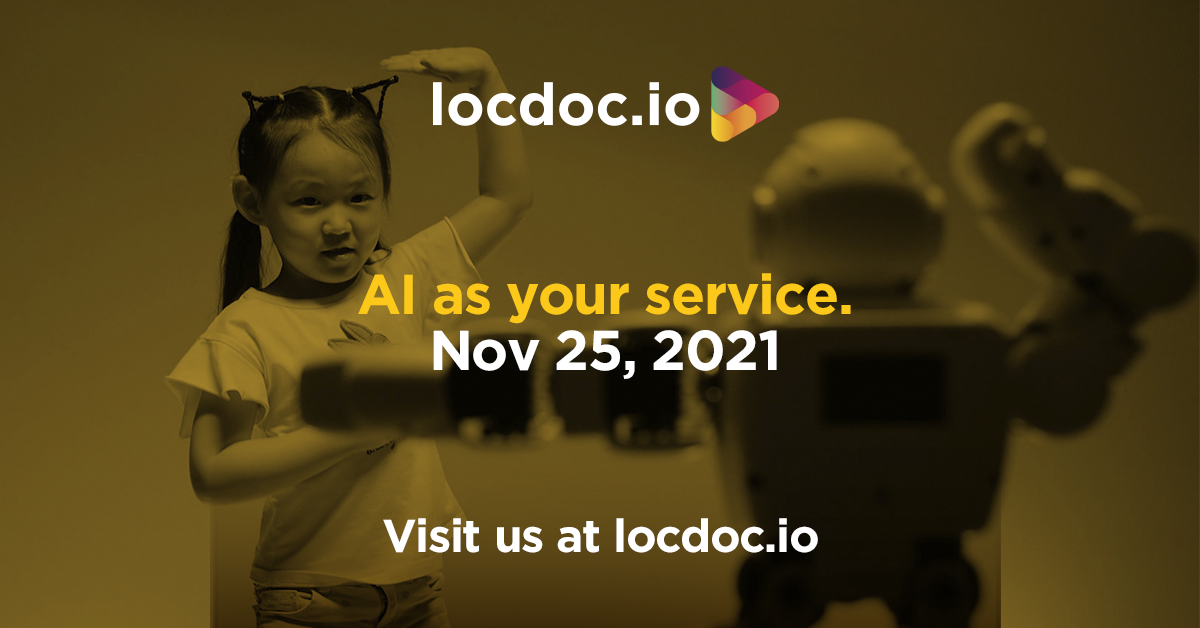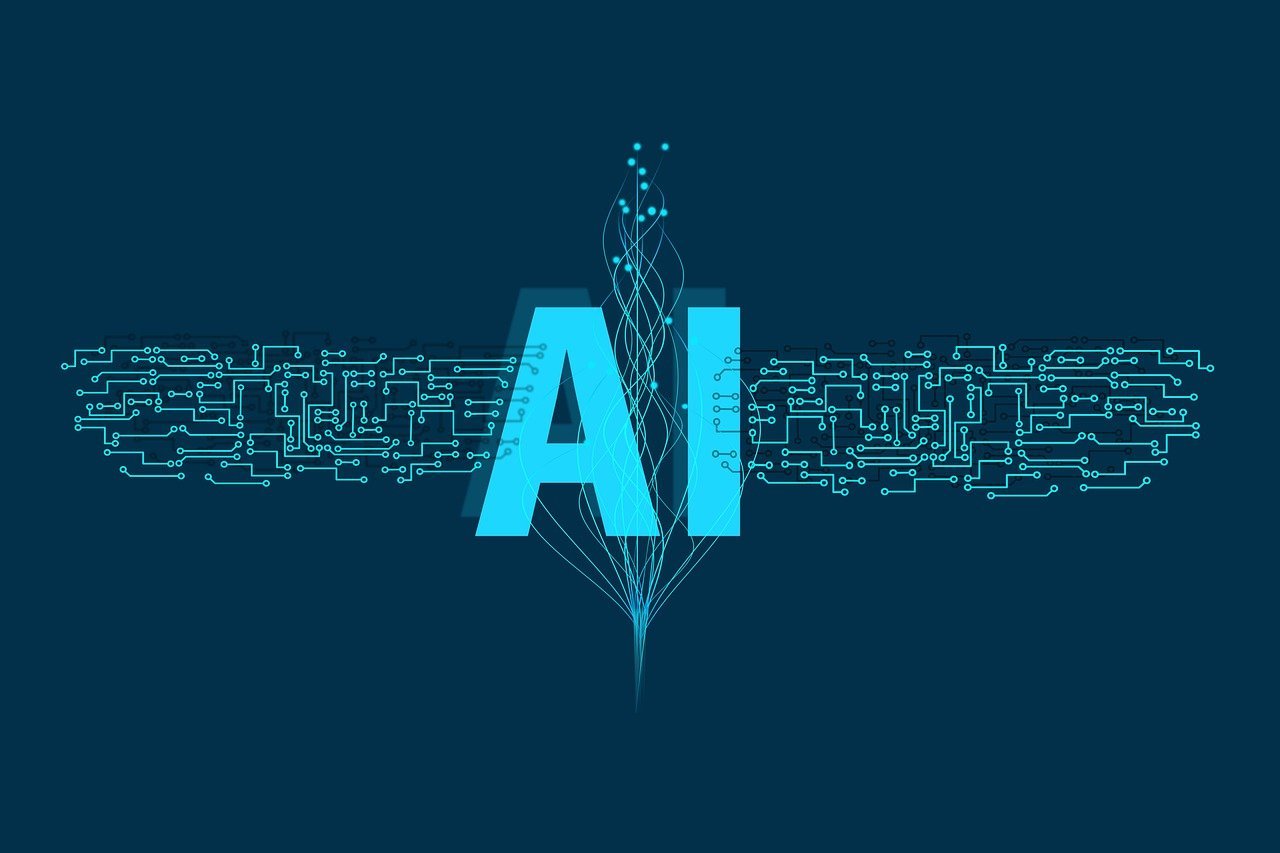AP | Portugal Tech Language Solutions' content curation not only aims to disseminate knowledge, by embracing this important role, we also take the selection of the best and most valid content in multiple areas very seriously.
Information remains a powerful weapon, even more, in the circumstances around the world these days.
So what is the future of AI translators in language learning?
Many people believe that artificial intelligence (AI) translators are surpassing human translators in their ability to accurately translate foreign languages. With the growing popularity of home voice recognition systems like Alexa and apps such as Google Translate, it’s easy to see why.
AI translation tools are great for self-study and for use as classroom aids, but a lot of the time the translations they produce need to be checked by a real person as they sometimes make obvious mistakes.
“Artificial intelligence is on the rise…However, some key criteria still need to be met before it can serve as a substitute for a real-life language teacher: spontaneity, creativity and shared knowledge.”
They also lack the human element; while you’re travelling abroad they can be very useful in emergency situations – for example when you need to look up a word or order something from the pharmacy. But it’s not easy to build relationships and survive using only digital translators using a text or voice translator.
“Artificial intelligence is on the rise…However, some key criteria still need to be met before it can serve as a substitute for a real-life language teacher: spontaneity, creativity and shared knowledge.”
What exactly is AI?
Artificial intelligence (AI) has become a red-hot topic, with record levels of investment in “AI” companies and promises of capabilities that will revolutionize our lives. Many are puzzling through how AI can add value, and a growing number of vendors claim to be “AI-powered.” Given the buzz and rush to wrap the mantle of AI around any new technology, it makes sense to ask the basic question, “What exactly is AI?”
There’s a fundamental element of AI that is critical to understand. AI can replicate some of the elements of human intelligence but, as with humans, needs relevant external information to form a point-of-view. In this sense, all AI is knowledge-dependent, and the way in which it handles this dependency is important.
As The Economist noted in its recent summary about AI trends: “AI can do a lot. But it works best when humans are there to hold its hand.”
The human filter makes all the difference in organizations
What kind of manager would bet their full faith in an AI system? What types would brush aside AI in favor of their own conclusions? When it comes to high-level strategic decisions, many executives still will go with their gut, and not the machine. Is this a good thing?
Higher-level, more strategic decisions that shape the direction of a business represent the last great frontier for AI in enterprises. And, to date, there is no shortage of skepticism among decision-makers when it comes to strategic AI.
When faced with identical AI outputs, many businesspeople still make their own decisions, a recent study concludes. The “human filter makes all the difference in organizations’ AI-based decisions,” according to Philip Meissner and Christoph Keding, both with ESCP, in a survey of 140 executives published in MIT Sloan Management Review.
The promises and perils of AI are becoming real
A major new report on the state of artificial intelligence (AI) has just been released. Think of it as the AI equivalent of an Intergovernmental Panel on Climate Change report, in that it identifies where AI is at today, and the promise and perils in view.
From language generation and molecular medicine to disinformation and algorithmic bias, AI has begun to permeate every aspect of our lives.
The report argues that we are at an inflection point where researchers and governments must think and act carefully to contain the risks AI presents and make the most of its benefits.
The report argues that we are at an inflection point where researchers and governments must think and act carefully to contain the risks AI presents and make the most of its benefits.
The report highlights the remarkable progress made in AI over the past five years. AI is leaving the laboratory and has entered our lives, having a “real-world impact on people, institutions, and culture”. Read the news on any given day and you’re likely to find multiple stories about some new advance in AI or some new use of AI.
EU's artificial intelligence law
The European Union wants its Artificial Intelligence (AI) Act to be an example for the rest of the world to follow when regulating the emerging technology.
EU Telecommunications ministers held their first debate on the proposed AI Act in Brussels to decide the guidelines for the coming years, where Slovenia's Minister for Public Administration Boštjan Koritnik said the bloc's AI act should serve as a global model.
"There is still substantial work ahead, as we want to make sure that the Artificial Intelligence Act will achieve its twin aims of ensuring safety and respect for fundamental rights and stimulating the development and uptake of AI-based technology in all sectors. The Slovenian [European Council] presidency will continue the intense work on this proposal, which it considers a top priority in the digital area."
Future of college will involve fewer professors
At a large private university in Northern California, a business professor uses an avatar to lecture on a virtual stage.
Meanwhile, at a Southern university, graduate students in an artificial intelligence course discover that one of their nine teaching assistants is a virtual avatar, Jill Watson, also known as Watson, IBM’s question-answering computer system. Of the 10,000 messages posted to an online message board in one semester, Jill participated in student conversations and responded to all inquiries with 97% accuracy.
At a private college on the East Coast, students interact with an AI chat agent in a virtual restaurant set in China to learn the Mandarin language.
These examples provide a glimpse into the future of teaching and learning in college. It is a future that will involve a drastically reduced role for full-time tenured or tenure-track faculty who teach face to face.
AI experts work on avatar for sign language
Experts at the University of Amsterdam are developing a computer programme that can translate into sign language, using the power of artificial intelligence. The project, part of SignLab Amsterdam, aims in the first instance to support parents of deaf children who are learning basic signing or for situations like announcements at airports and railway stations.
The project, at prototype stage has already been trialled this year as a machine translation tool to improve the communication between healthcare professionals and deaf patients suffering from the coronavirus. The avatar, who does not yet have a name, can produce around 8,000 sentences such as ‘where are you feeling pain?’ or ‘the MRI is not entirely good.’
“Das Leben war wie eine Schachtel Schokoladen”
Few cultural experiences are as surreal as stumbling upon a dubbed Hollywood movie. There’s the cartoonish lip movements. The mistimed action. The strange baritone that doesn’t sound at all like you remember Tom Hanks sounding.
It turns out that after all these decades a new class of start-ups is hoping to address this unintentional performance art. Using artificial intelligence and machine learning, they aim to make the dubbing process more efficient and more natural, part of an emerging movement known as “auto-dubbing.”
“The potential here is so big,” said Scott Mann, a Hollywood director who co-founded one of these start-ups, Flawless. “Most of us are not even aware how much great content is in the world. Now we can watch it.”
Yet for all its shimmering cross-culturalism, hidden and often dark social implications abound. Entertainment in an easy-dub time could lose all of its local flavor. Consumers around the world, meanwhile, may never be exposed to the sounds of a foreign language. Dubbing has long been a painstaking exercise, and that’s before anyone even watches.
Can metadata help to keep the digital space transparent?
The spike of AI and ML integration into the digital world is leading to numerous concerns about the credibility of content. Users cannot blindly trust content creators and publishers. It becomes important to understand the source of the material and whether it has been digitally manipulated in some way. The scope of this question about digital origins is increasing exponentially. The number of deepfakes doubled over the previous year and reached 85,047 videos in December 2020.
Given this trend, it’s becoming increasingly important to build transparency in the digital medium. This involves a means to mark content with information on its creator, origin, and recent changes – this can be done with an old friend to digital files – like metadata.
Metadata is a reference to data about other data – with synthetic media, it’s shorthand information about a digital asset. Today, metadata gives essentially a snapshot about a particular file. To understand how it works, think about visiting the library. When you want to know about a book, you look at it’s descriptive information – the author, title, date of publication, publisher, etc.
ABOUT US
AP PORTUGAL Tech Language Solutions is the expression of service and vision in the areas of translation, interpretation and communication technology services.
With offices in Lisbon and Porto, it is the only Portuguese company certified by both International Quality Standards ISO 17100 and ISO 18587, and also by DGERT as a training entity. Internationally renowned for its skills in the areas of translation, interpretation, transcription, localization, subtitling and proofreading, the company is also specialized in event and conference management, audiovisual equipment rental, and VRI - Video Remote Interpreting.
The company’s intervention extends to the area of creative content production in any language, allowing AP | PORTUGAL to support companies and organizations through its Copywriting platform, also focusing on text, audio or video solutions based on Artificial Intelligence.
AP PORTUGAL includes the Artiga Center - European Centre for Amplified Events -, a facility which offers all equipment necessary for any type of event, be it hybrid, face-to-face or digital, besides being equipped for face-to-face or digital Team Building activities.
You can also follow us on social media: Facebook, LinkedIn, Twitter and Instagram.
Related Articles:
AP | PORTUGAL - Tech Language Solutions is the expression of service and vision in the...
Related Articles:
AP | PORTUGAL - Tech Language Solutions' content curation not only aims to disseminate...
Related Articles:
AP | PORTUGAL - Tech Language Solutions is the expression of service and vision in the...







Comments